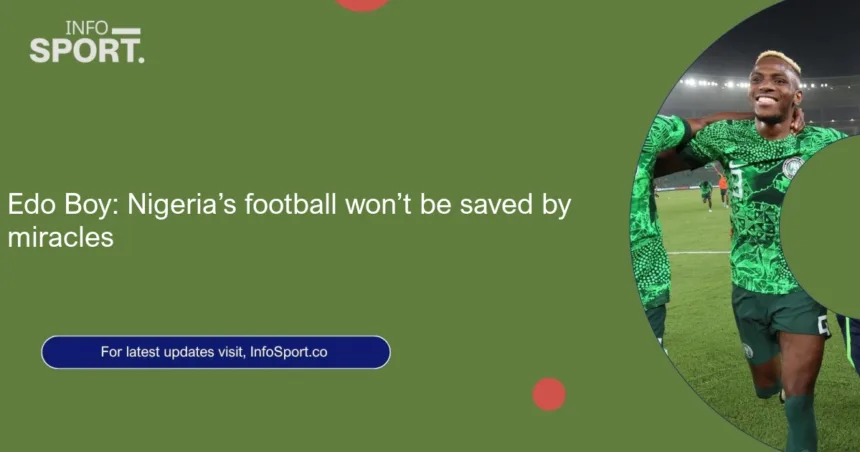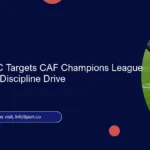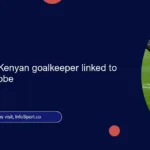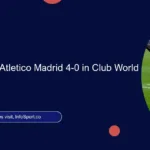No Miracle Can Save Nigeria’s Football — Edo Boy
No miracle can save Nigeria’s football, according to Edo Boy, a prominent voice in the ongoing debates surrounding the nation’s sporting challenges. This incisive assertion highlights the pressing need for a systemic overhaul within Nigerian football, where recent dismal performances underscore a decline in international competitiveness and youth development.
A Crisis Rooted in Structural Deficiencies
The current state of Nigerian football can be largely traced back to poor governance and inadequate investment in grassroots development. With Nigeria’s U-20 team failing to qualify for consecutive World Cups and its senior team struggling to make an impact in international tournaments, the statistics paint a bleak picture. Data reveals that Nigeria’s FIFA ranking has slipped significantly, dropping to 32nd in 2023, while traditional powerhouses in Africa have consolidated their dominance.
Edo Boy’s claims echo sentiments expressed by football analysts who argue that without substantial investment in infrastructure and youth academies, the country will continue to witness a talent drain. It is not merely about elite clubs but the foundational layers that breed future stars.
The Need for a New Vision
To revive Nigerian football, stakeholders must adopt a new vision focused on sustainable growth rather than short-term success. This involves not only redefining strategic priorities within the Nigeria Football Federation (NFF) but also engaging with local communities to enhance youth participation. Collaborations with international bodies could offer critical funding and expertise, addressing the urgent need for training facilities and coaching programs.
Incorporating technology into training regimes is another avenue for performance enhancement. By employing data analytics similar to what is utilized in elite leagues worldwide, scouting and player development could be drastically improved.
Conclusion
In summary, Edo Boy’s assertion that “no miracle can save Nigeria’s football” underscores a reality that cannot be ignored. To reverse the decline, industry stakeholders must prioritize investment in the grassroots and re-imagine their approach. This call to action is essential for nurturing a generation that can bring Nigerian football back to its former glory. Public discussions must persist, and community engagement is key to fostering the necessary changes.






















